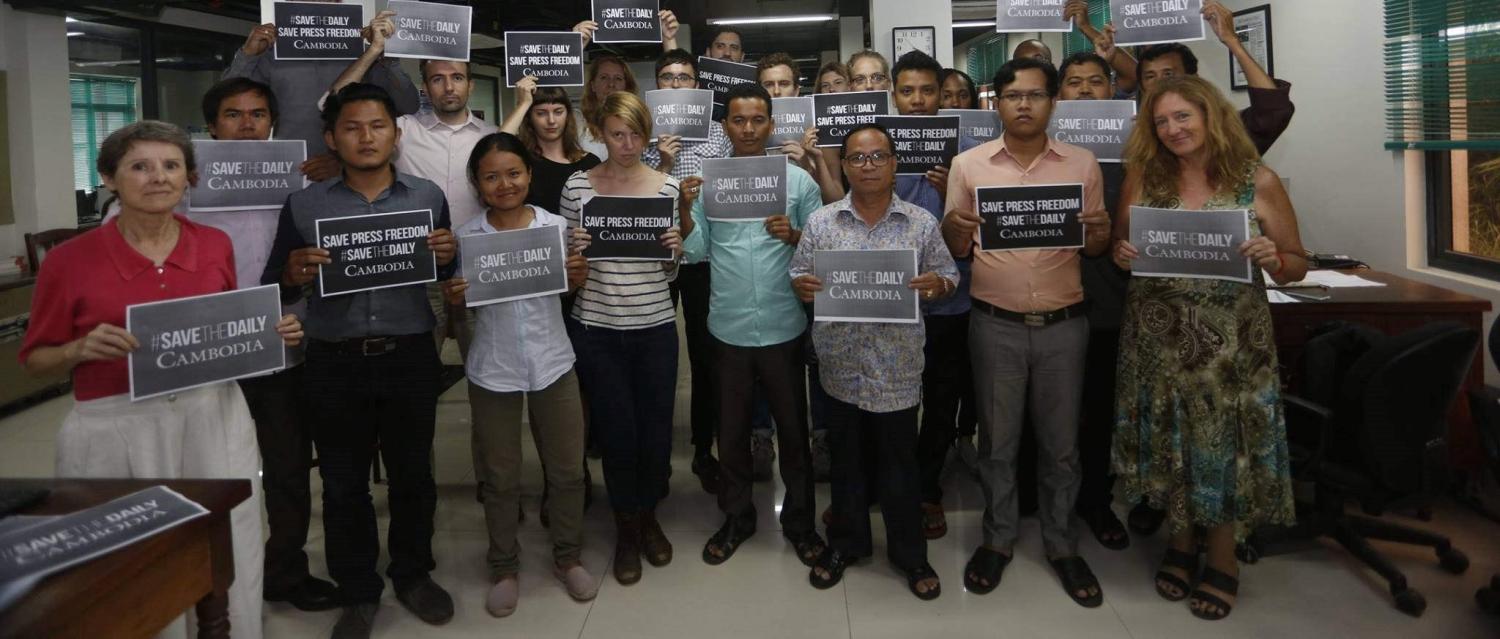In the middle of the night on Saturday, hundreds of police surrounded Cambodian opposition leader Kem Sokha's house. Despite his parliamentary immunity, they arrested him and took him to the notorious Correctional Center 3 on the border with Vietnam.
On Monday, prosecutors announced that they had charged Kem Sokha with treason for conspiring with the United States to overthrow the government. As evidence, they produced a video of a talk he had given in Melbourne four years earlier describing US support for democratisation in Cambodia. Under the Cambodian Constitution, parliamentary immunity is void if a member is caught committing a crime in flagrante delicto, or in the act, and the prosecutors said the video qualified.
At the same time, the government of Prime Minister Hun Sen has been cracking down on Cambodia's English-language press, handing a disputed $6.3 million tax bill to the Cambodia Daily that forced the paper's closure on Monday. The Cambodia Daily's final headline ('Descent into Outright Dictatorship') summed up the high drama of the weekend's crackdown.
In this Quick Comment, I speak with former Lowy Institute Nonresident Fellow Milton Osborne, one of the world's leading historians of Cambodian politics, about these developments, and how to put them in the context of Cambodian history.

